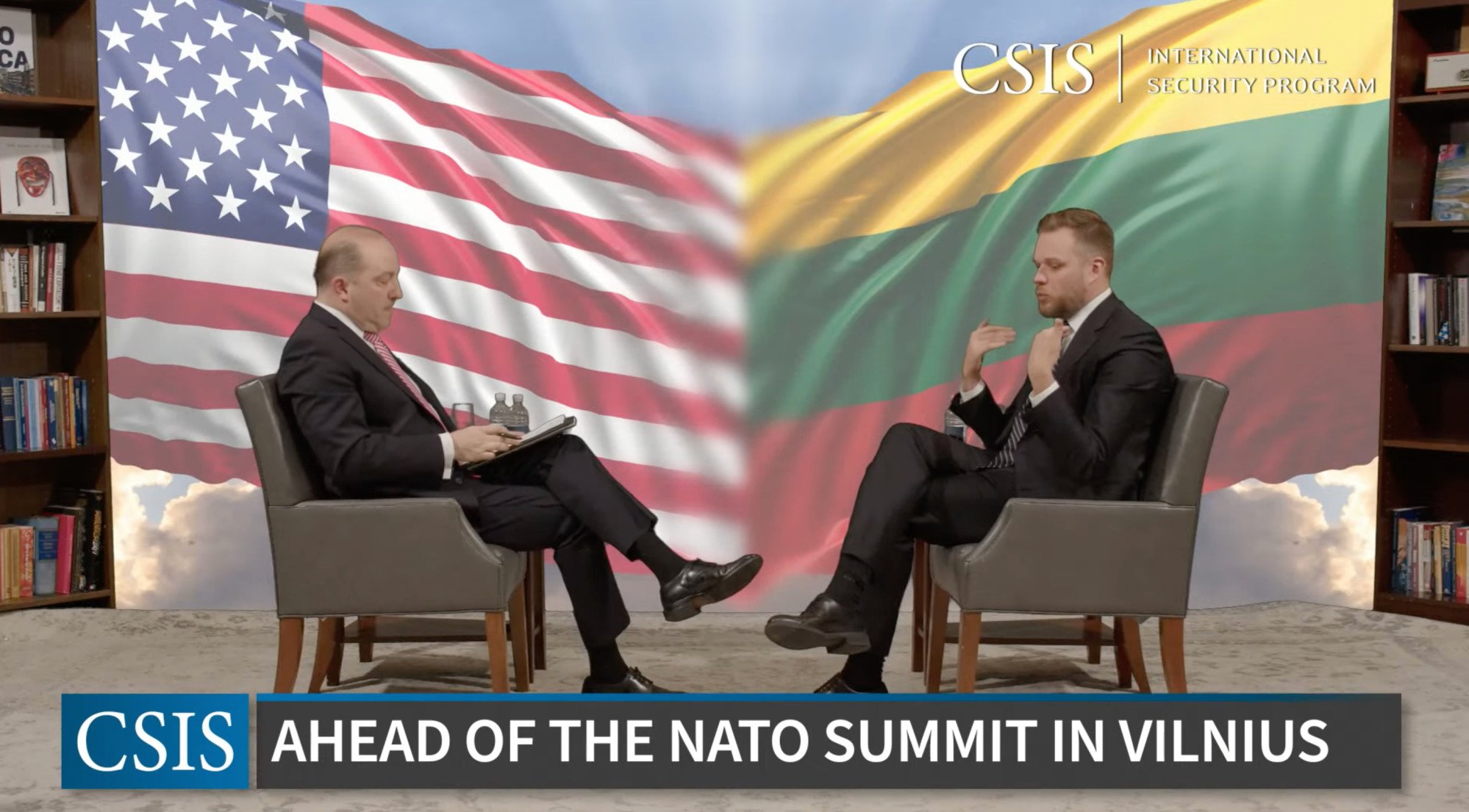
China likely on Nato agenda over ‘limitless’ Russia partnership, says Lithuanian foreign minister
- Baltic country’s Asia-Pacific allies may again attend transatlantic security alliance’s annual meeting, slated this year for Vilnius
- China ‘a significant part of conversation’ given possibility of weapons transfers to Russia, Gabrielius Landsbergis adds
Gabrielius Landsbergis said China would likely be individually cited for a second consecutive year at the annual Nato meeting, “especially if our Asia-Pacific partners join in the conversation”.
“I’m not sure whether they accepted the invitation, but maybe that’s in due time,” Landsbergis said of Lithuania’s Asia-Pacific allies in remarks at the Centre for Strategic and International Studies, a bipartisan Washington think tank.

Lithuania has one of Europe’s most contentious relationships with China. The country became embroiled in a trade stand-off with Beijing after Vilnius agreed to allow the self-ruled island’s representative office in Lithuania to use the word “Taiwanese” in its name instead of other identifiers that Beijing finds less objectionable.
Landsbergis was in the US capital for meetings with Secretary of State Antony Blinken, who said in a joint statement that they “reaffirmed their strong concerns about the [People’s Republic of China’s] recent and ongoing economic coercion of partner economies and provocative actions that undermine the status quo in the Taiwan Strait”.
How EU-China relations became a casualty of the war in Ukraine
Landsbergis said in his CSIS interview with Daniel Fata, a former US deputy assistant secretary of defence for Europe and Nato, that Beijing’s alignment with Russia potentially put China in Nato’s neighbourhood, making the country a key issue for the Western defence alliance.
A trip by Beijing’s top diplomat Wang Yi to Moscow immediately after an EU tour just ahead of the anniversary, without an attempt to meet Ukrainian officials, underscored this assessment.

“If Russia is starting to rebuild … and China is helping with that, and … building factories near St Petersburg, is it part of North Atlantic security? Is it an issue? I think, definitely, it is,” Landsbergis said.

